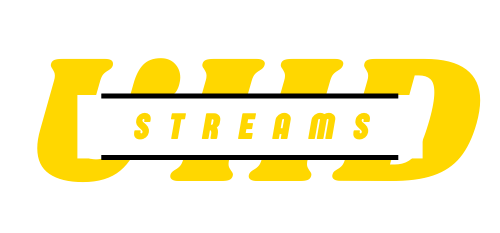
The world of education is undergoing a transformation, and EdTech startups are at the forefront of this change. These innovative companies are leveraging technology to create new ways of learning, making education more accessible, engaging, and effective. As the demand for online education continues to grow, EdTech startups are finding new solutions to address the challenges faced by students, educators, and institutions alike. In this post, we will explore how EdTech startups are revolutionizing the education landscape and what the future holds for online learning.
What Are EdTech Startups?
EdTech startups are companies that use technology to improve education. They develop software, platforms, tools, and services designed to enhance the learning experience for students and streamline the teaching process for educators. These startups focus on innovation and use cutting-edge technologies like artificial intelligence (AI), virtual reality (VR), and data analytics to build solutions that address gaps in traditional education systems.
Whether it’s creating interactive online courses, developing personalized learning paths, or providing tools for educators, EdTech startups are reshaping how we think about and engage with education.
Key Innovations by EdTech Startups
1. Personalized Learning Solutions
One of the biggest challenges in education is creating personalized learning experiences. Students learn in different ways and at different paces, and a one-size-fits-all approach can leave some learners behind. EdTech startups are solving this problem by using artificial intelligence (AI) and machine learning to create adaptive learning platforms.
These platforms assess each student’s progress and learning style, then adjust content and difficulty levels to suit their individual needs. This personalized learning approach ensures that each student receives the right level of support, helping them to stay engaged and succeed.
2. Interactive and Immersive Learning
EdTech startups are also bringing interactivity and immersion to online learning. By integrating technologies like virtual reality (VR), augmented reality (AR), and gamification, they are making learning more engaging and fun. These tools allow students to experience lessons in a hands-on way, whether it’s exploring historical sites in VR or simulating scientific experiments.
Interactive content keeps students motivated and actively involved in their learning, which has been shown to improve retention and comprehension. This is particularly valuable for subjects that benefit from practical experience, such as engineering, medicine, and the arts.
3. Collaborative Learning Platforms
Traditional education often emphasizes individual learning, but the rise of collaborative learning is helping students engage more effectively. Many EdTech startups are creating platforms that allow students to work together on projects, share ideas, and solve problems in a collaborative environment.
These platforms often include features like discussion boards, group projects, and peer assessments, making it easier for students to interact and learn from each other. Collaborative learning helps students develop crucial skills such as teamwork, communication, and critical thinking, which are highly valued in today’s workforce.
Addressing Challenges with EdTech Innovations
1. Making Education More Accessible
One of the greatest benefits of EdTech startups is their ability to make education more accessible to people around the world. Online platforms break down geographic and financial barriers, allowing students in remote or underserved areas to access high-quality education.
By offering affordable or free online courses, many EdTech companies are democratizing education and providing opportunities to learners who otherwise might not have had access. Whether it’s providing free courses from top universities or low-cost certifications in specific skills, EdTech is helping to level the playing field for students globally.
2. Providing Continuous Learning Opportunities
In today’s fast-paced world, lifelong learning is becoming increasingly important. EdTech startups are catering to this need by offering platforms for continuous education. These platforms provide opportunities for professionals to upskill or reskill throughout their careers, keeping them competitive in an ever-evolving job market.
By offering flexible, on-demand learning, EdTech startups allow learners to fit education into their busy lives. Whether it’s a short online course, a certificate program, or a full degree, these platforms make it easy for people to continue learning long after they’ve completed their formal education.
3. Tracking and Improving Learning Outcomes
Another challenge in traditional education is the ability to track and measure learning outcomes. EdTech startups are using data analytics to provide deeper insights into student performance. These platforms track everything from attendance and engagement to assignment completion and exam scores, giving educators a clear picture of student progress.
By analyzing this data, teachers can identify areas where students may need extra help and provide targeted support. Furthermore, students can track their own progress and stay motivated by seeing improvements in real time.
The Future of EdTech Startups
1. Integration of Artificial Intelligence (AI)
AI will continue to play a key role in the evolution of EdTech. As AI becomes more sophisticated, it will allow for even more personalized learning experiences. AI-powered tutors will be able to help students with homework, answer questions, and provide explanations tailored to individual needs. Additionally, AI can analyze large sets of data to identify trends in learning behavior, helping to predict and prevent potential issues before they arise.
2. Expanding Global Access to Education
As EdTech companies continue to grow, global access to education will only increase. By providing low-cost or free educational resources, these startups are helping students in developing countries gain the skills they need to succeed. With mobile technology becoming more widespread, mobile-first learning platforms will allow people to learn on the go, even in regions with limited access to traditional computers.
3. Increased Focus on Mental Health and Wellbeing
EdTech startups are beginning to recognize the importance of mental health in education. Many platforms now incorporate mental health resources and tools designed to help students manage stress, anxiety, and other challenges. As online education becomes more mainstream, providing emotional and psychological support will be essential for ensuring students’ overall wellbeing.
4. Hybrid Learning Models
The COVID-19 pandemic accelerated the adoption of hybrid learning models, where students split their time between online and in-person education. Moving forward, EdTech startups will continue to innovate in this space, creating blended learning platforms that seamlessly combine the flexibility of online learning with the benefits of face-to-face interactions.
Conclusion: EdTech Startups Are Shaping the Future of Education
EdTech startups are driving the future of education by creating innovative solutions that make learning more accessible, engaging, and personalized. Through the use of AI, interactive tools, and collaborative platforms, these companies are transforming the way we learn and teach. They are addressing longstanding challenges like accessibility, engagement, and learning outcomes while paving the way for a more flexible, inclusive, and effective educational experience for all.



Leave a Reply